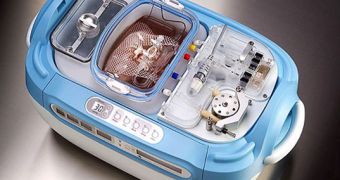New ethical questions are asked each day about the ever-growing number of Internet sites dedicated to finding kidney donors or solicitors on the Web. These sites answer the need that people in terminal stages of renal diseases have, which is to receive new organs from living persons. The other option implies waiting on the donor list for many years in a row, while on dialysis.
Some people simply do not afford the luxury of time and, therefore, turn to these websites for help. On some of them, donors are often very poor people, who are attracted by the large sums of money they are promised. This type of donor is known among doctors as "the good Samaritan." Specialists fear that patients turning to these types of sites do so more because they are convinced in that direction and not necessarily because it's the best medical option for them.
The authors of a new study on the matter, published in Clinical Transplantation, say that, out of the over 230 Internet profiles they've analyzed, taken from the largest donor sites on the Web, very few had any socio-demographic data listed, other than their gender, age and location. And yet, these sites do not currently go in conflict with existing donor policies nationwide. Considering that there are over 75,000 people on waiting lists in the U.S., it's easy to see why they would enter these sites.
It's impossible for all of them to receive kidneys before it's too late, statistics say. The odds of a patient with a rare blood type getting a matching organ are very remote as it is. The risk of rejection is also an important factor in any type of transplant. But all these seem irrelevant to those who may think they are discriminated against on normal waiting lists. For example, people of color or of unclear social background could feel that they don't have a lot of chances on hospital waiting lists, so they naturally turn to the next best thing.
But scientists ask themselves if this is the best way to go. More donors on-line means less donors in hospitals, which is not a very good prospect for doctors taking care of their patients. Also, people soliciting living kidneys often cannot do that with their relatives, because of psychological factors, such as the fear of guilt or maybe the implications such a transaction will have on a marriage or a relationship. By asking for what they need on-line, people unknowingly avoid these types of unpleasant situations, at the expense of others still waiting on lists.

 14 DAY TRIAL //
14 DAY TRIAL //